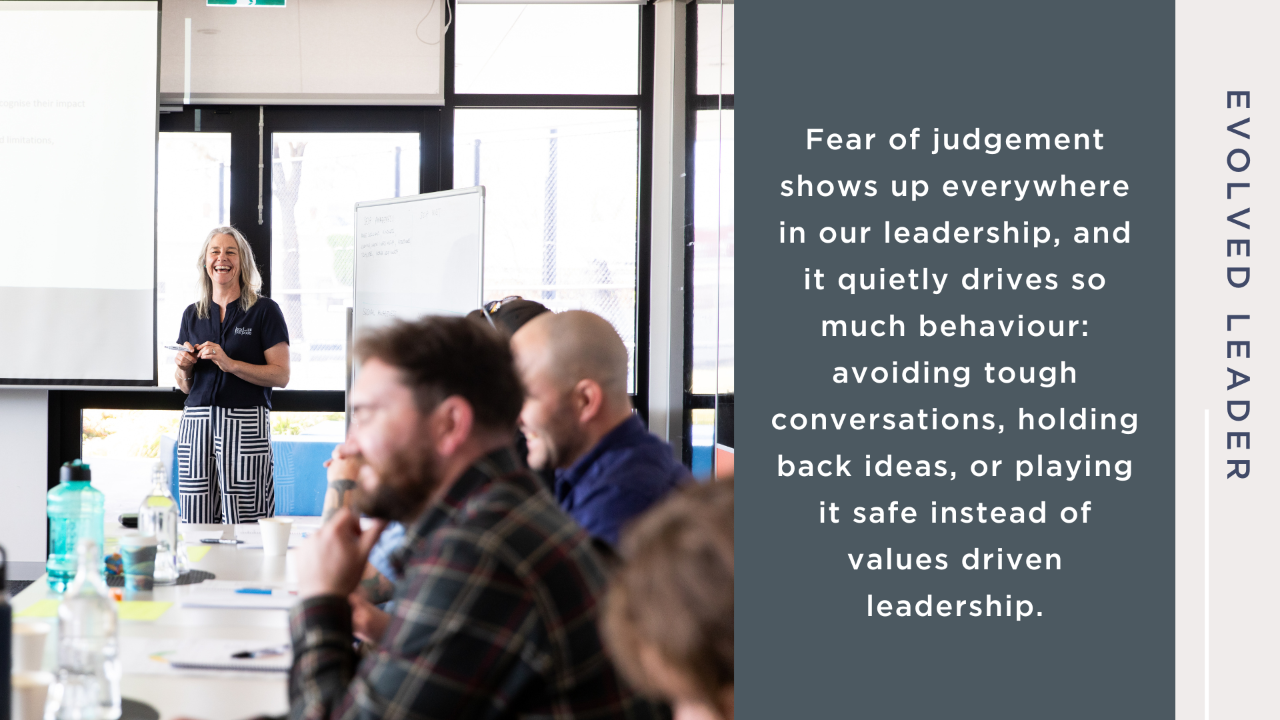The Fear of Judgement: How It Traps Leaders and Hijacks your Thinking
Oct 16, 2025
Have you ever caught yourself holding back from saying what you really think because you were worried about how others might see you? Most leaders have. Fear of judgement is one of the biggest traps in leadership, it shifts our focus from doing what’s right (values driven) to doing what looks safe or favourable.
Our brain processes social judgement as a threat, which means it triggers the same fight-or-flight response as if we were facing physical danger. When this happens, our prefrontal cortex, the part of the brain responsible for rational thinking, problem-solving and courage, gets hijacked by the amygdala, which is focused on survival. This is why, in that moment the fear of judgement feels so strong: our biology is urging us to avoid rejection at all costs.
In that state, instead of constructively asking “what does this situation really need from me?”, we start scanning for approval, avoiding conflict, or making the decision that feels safest for our reputation or how we are perceived by others.
But leadership demands more than safe decisions from us. When we start to prioritise perception over principle, make consensus decisions or hold back ideas that might challenge the status quo, we are not leading. The decision feels safer in the moment, but it comes at a cost.
We dilute our impact and erode trust. People can sense in an instant when we start putting a higher priority on approval and it sends a message: “looking good or gaining approval from others matters more than doing what’s right.”
Knowing what you stand for
The antidote to fear of judgement is clarity. When you know what you stand for, your values, your principles, your non-negotiables, decision-making becomes less about you and approval and more about alignment. When we act in line with our values, it activates reward centres in the brain, reinforcing a sense of integrity and confidence. Leaders who haven’t done the work to define what you stand for are more easily swayed by outside opinions; those who are able to pause, centre yourself, and choose courage even in the face of criticism, can be truly values driven.
Shifting from fear to courage
The good news is that while we can’t eliminate our brain’s reaction to judgement, we can build tools to move past it. Three simple but powerful strategies are:
Reframe the fear
Instead of asking “What will people think of me?”, shift the question to “What’s the right thing for my team, safety, or values?” This simple reframe takes the spotlight off you and back onto your purpose, helping to override our brain’s self-protective instinct.
Name it to tame it
Science shows that simply labelling an emotion reduces its intensity. When you recognise decisions being impacted by the presence or avoidance of judgement, silently name it “I’m worried about how this will be received by others or a certain individual.” By acknowledging it, you calm your amygdala and create space for more rational decision-making.
Practise values-aligned courage
When you’re clear on what you stand for, even everyday choices, speaking up, addressing behaviours, or being transparent, become values driven. Each time you choose values over fear, you train your brain to act more authentically when the stakes are higher.
Leading with courage
Fear of judgement is hardwired into us, but if we let it drive our choices, we risk becoming cautious managers instead of leaders. Playing it safe might protect your image in the short term, but it undermines trust, weakens your decision-making, and signals that approval matters more than integrity.
Real leadership begins with knowing what you stand for. When your decisions stem from your values rather than fear, you can act from conviction instead of caution, and that authenticity is what builds lasting influence.
Get Evolved Leader delivered to your inbox every week to receive effective tools and practical ideas you can implement to develop your own leadership skills and style as well as those in your team.
We hate SPAM. We will never sell your information, for any reason.


